Hope, exhaustion and heartbreak: My journey through a Premier League club's academy system
"I felt like I had let everyone down. I was embarrassed.”
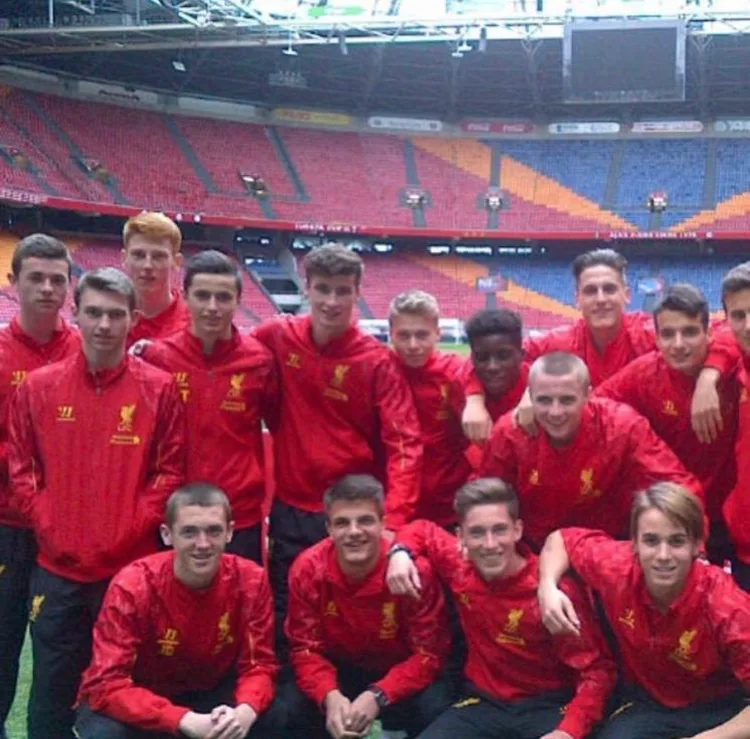
At 16, Owen Wheeler was rubbing shoulders with Luis Suarez and his childhood hero Steven Gerrard.
At 18, he was living with embarrassment and feared he had let his family down after being released by Liverpool Football Club.
“I had a few breakdowns to my mum,” he recalls. “But they were few and far between because I felt like I had let everyone down. I was embarrassed.”
Now 24, he plays in the eighth tier of English football in front of few-dozen fans and is responsible for washing his own kit, as he balances his restored love for the game with his day job as a PE teacher.
English football’s academy system has entered a period of self-reflection in recent years after countless teenagers have endured torrid physiological battles upon their release from elite-level clubs.
It was just two years ago that former Manchester City youth team player Jeremy Wisten tragically took his own life after “not receiving the right support at Manchester City to find a new club,” according to his father.
Wisten’s death evoked an increased awareness of the mental exhaustion placed on young, aspiring footballers, prompting professional football clubs across England to enhance the welfare packages on offer to those who fail to make the jump into the professional game.
Just three per cent of the 4,106 players signed to Category One status Premier League clubs - now aged between 21-26 – managed to make a Premier League appearance, according to figures obtained by the i newspaper.
Wheeler is in the 97 per cent.
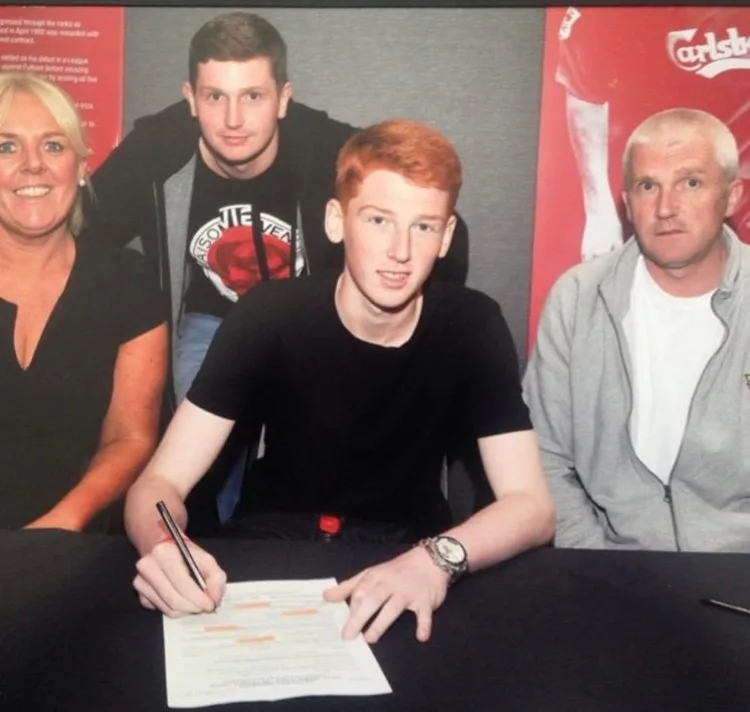
The 24-year-old Liverpudlian, who grew up in the threadbare town of Halewood, has already endured a football career packed with enough narratives to serve many walks of life. By his own admission, it’s been an extraordinary rollercoaster.
His story is one – just like the millions of other hopeful prodigies across the country - filled with love, anger, adversity, exhaustion and most commonly heartbreak.
Having grown up in one of the country’s most football-centric cities, Wheeler was no different and his affection for the game blossomed from an early age due to his older brother, father, and uncle who played for Liverpool over 200 times, Steve McMahon.
It wasn't long before he would follow in the footsteps of some of his favourite Anfield icons; Gerrard, Jamie Carragher and Robbie Fowler as Liverpool Football Club invited him to take part in their youth set-up while he was still in primary school.
Wheeler would complete three years at Liverpool's famed academy in Kirkby - with a spell in the club’s Development Centre - before penning official forms with the club at just nine years of age. He then decided to join city rivals, Everton, until the age of 13.
That’s when the sacrifices started, even at such a tender age. Friends’ birthday parties would be missed, time playing out with his mates would diminish and everything started to become a little bit more serious. All in devotion to his innocent love for the game.
It’s a path many youngsters find themselves treading during the fledgling stages of their careers, usually training three times a week in addition to playing fixtures in far-flung locations across the country.
But for Wheeler, it was all he knew.
“Liverpool were with Adidas at the time,'' he says recalling the moment his dearest pastime started to become more serious than just a harmless kickabout.
“We were getting two brand new pairs of boots, with your names on them. That’s when I first noticed [the seriousness], I’d say.”
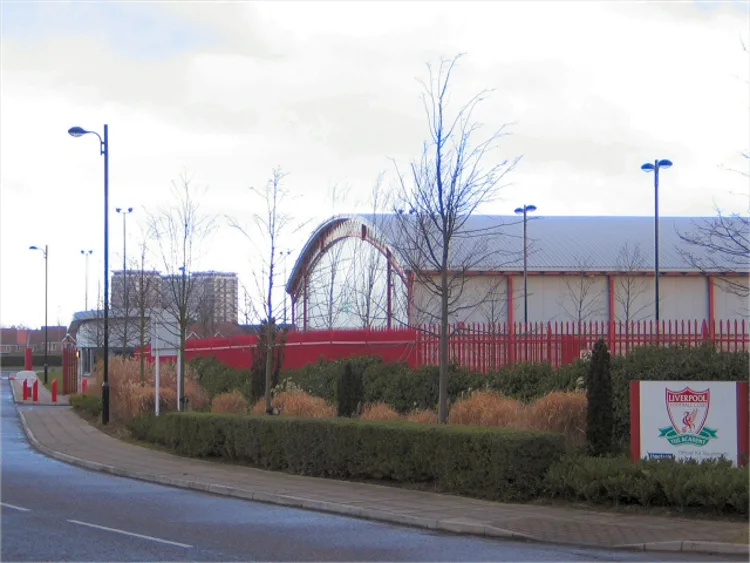
In recent years, the morality around academy football in England has been questioned as a result of how vulnerable juveniles are treated from the moment they first sign along the dotted lines. In most circumstances, spending in excess of ten years involved in a distorted environment that fails to prepare them for the ‘real world’, before being swiftly discarded before they even turn 18.
Usually leaving in a more vulnerable state than the one they arrived in.
Earlier this year Crystal Palace became the first Premier League side to launch an enhanced aftercare system for released players aged 18-23. As part of the programme, a player officer stays in regular contact with the players who fail to make the grade at Selhurst Park. The aim is to help their former players secure new football clubs, and jobs, or even explore the options of heading back into full-time education.
And Palace’s Chairman Steve Parish has vowed to increase the quality of the human beings who walk out the door of the Selhurst Park too, rather than just the footballers.
“They will obviously develop as footballers, but also as young men, being taught a range of hugely beneficial life skills, “ he said speaking at the launch of the Eagles’ enhanced aftercare scheme in January.
But for one father of a current academy player, who wanted to remain anonymous, it’s a move long overdue. He believes Premier League clubs have been getting away with their mistreatment of released players for too long.
“The ‘bigger clubs’ get away with it more because when they release a player there is usually another club further down the football pyramid willing to sign them, based on their pedigree of where they have come from, and how long they have been there,” he says.
He adds: “The smaller academies don't have that option and I don't think they are doing enough to provide them with other opportunities upon being released. Whether that be gaining coaching badges or any different path from being a footballer.”
That has become the sobering reality for the vast number of hopefuls worldwide, which has led to the father having no choice but to raise the discussion of rejection to his football-obsessed son - who is just 13-years old.
“I have always tried to make him aware that the likelihood of making it into a career in football is really slim,” he reveals.
“A rejection would be devastating for all those involved in his journey as a result of the impact it can have on his siblings, mums, and dads. Along with the sacrifices everyone has to make to try and achieve their goals.
"The moment they stop enjoying football and they start to feel like the pressure is on, then I think there is only going to be one outcome."
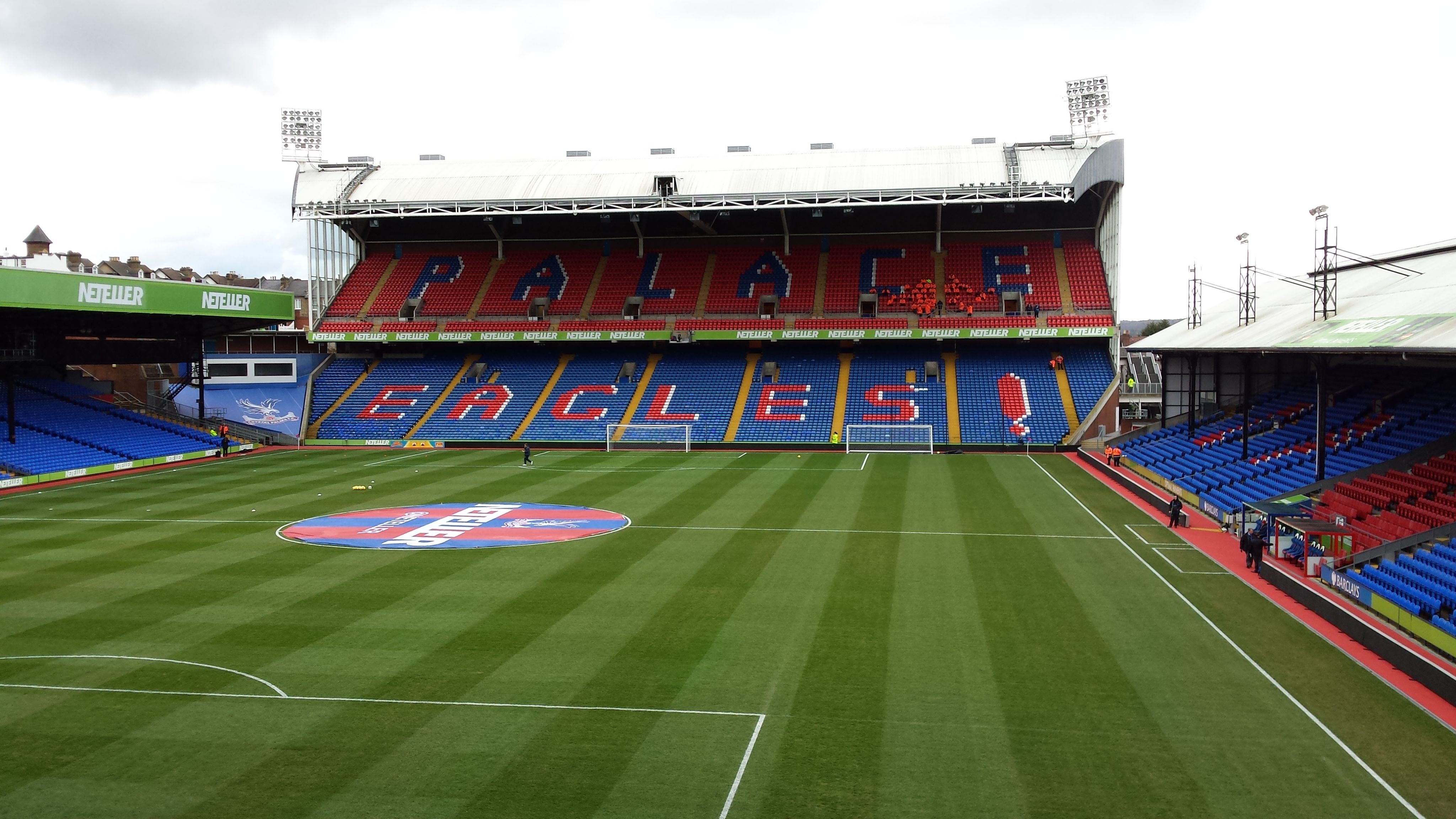
The Premier League declined the opportunity to comment when asked about the high number of academy graduates who had failed to make a single senior league appearance for their respective clubs.
However, the league did reveal that the support network available to contracted players has expanded in recent years with the Premier League’s U16 Development Programme opening its doors to include those released from Football League clubs from this season onwards.
The programme hosts three camps across the country and combines elite-level training with workshops on career possibilities away from the game, in order to help released youngsters to get back on track. This comes three years on from the Premier League’s inaugural pre-season camp which provides support for those released from academies.
These programmes are aimed to alleviate the pressure on the shoulders of young footballers. This is echoed by Wheeler, who explains from the age of 14 how hectic his life became almost overnight as he began travelling away with the Liverpool youth team on a regular basis, while he was simultaneously handed the honour of representing his country at schoolboy level. All before signing a two-year scholarship with the Reds at the age of 16.
Cynics will question how anyone could complain about scaling such impressive career heights at such infancy. But in contrast, how could a teenager stationed with this pressure be expected to enjoy a normal, pure childhood?
For Wheeler the answer is obvious. They can’t.
“I finished my GCSEs, and everyone goes on about that summer being the best one of your school life,” he says.
“But I think I only had two weeks off. You’re training in the morning all the time, it’s like the flip of a switch and you’re thrown into this whirlwind environment.”
"People will look at it and be like 'you’re just playing football', but it’s exhausting. You get home and you’re knackered, and you just sit at home waiting to go again the next day."
England’s failure to reap the rewards of their own harvest was highlighted by the limited number of academy players who featured in the squads of their respective Premier League clubs on the opening day of the 2021/22 season.
Out of the 400 players who were either on the bench or in the starting eleven across the 20 clubs during the opening round of league fixtures, only 67 had progressed from the clubs' academies. A figure which translates to just 16 per cent.
This comes as a result of the Premier League’s global audience growing at an exponential rate - highlighted by the latest broadcasting deal being sold for a mouth-watering £10million over a three-season period.
The increased revenue available to elite-level clubs means less importance is placed on clubs scouring the stars of the future from their own supplies. Instead, clubs decide to recruit talent from overseas where players of a similar age to those in their own youth set-up have already racked up a substantial amount of first-team appearances. This sees players with aspirations, like Wheeler’s, discarded to one side as they’re suddenly informed their services are no longer required.
Anxiety, depression and embarrassment are just a few of the side effects that surface inside the often-disillusioned minds of the rejected youngsters. Who are often left feeling worthless.
For Wheeler, he remembers the day, the moment and more vividly than anything the relief he was spared once received the news of his release from Liverpool Football Club.
“I was just numb,” he explains.
"I don’t think I showed any emotion, I was just like ‘oh well’. I think it was a weight lifted more than anything."
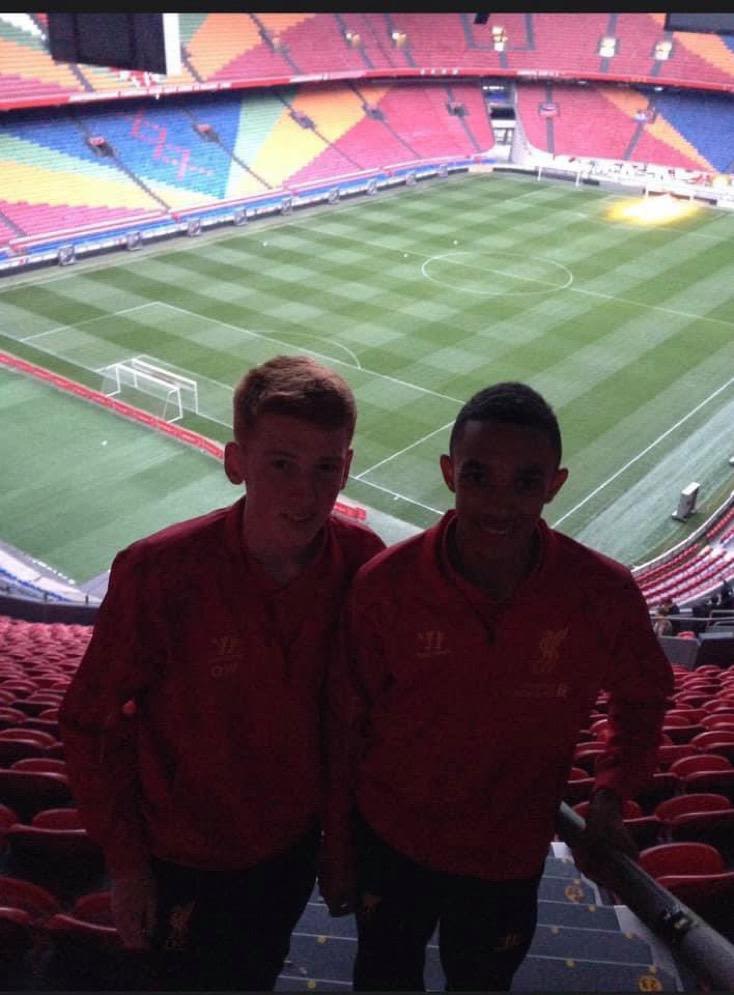
Owen with former Liverpool teammate Trent Alexander-Arnold during a tour with the youth team in 2012.
Owen with former Liverpool teammate Trent Alexander-Arnold during a tour with the youth team in 2012.
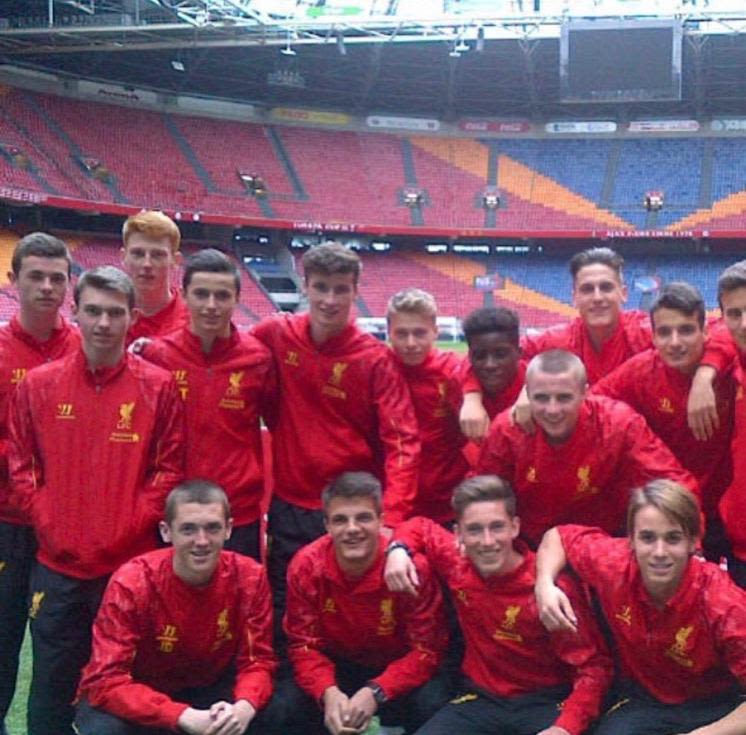
Owen [back left] with his former Liverpool teammates - which include Harry Wilson, Tom Brewitt, Jordan Rossiter and Sheyi Ojo - during a tour in 2012.
Owen [back left] with his former Liverpool teammates - which include Harry Wilson, Tom Brewitt, Jordan Rossiter and Sheyi Ojo - during a tour in 2012.
Despite choosing to sport a brave exterior after the crushing news, it was that hidden psychological scar that left the former Reds goalkeeper petrified of re-entering the football world ahead of the 2016/17 season, before eventually deciding to trial with Premier League clubs Wolves and Leicester City.
But his love for the game would be retrieved by his hero, Gerrard, who had set up an academy in Liverpool for youngsters to be a part of while they looked for new adventures within the game.
A triumph in the 2017 edition of the Dallas Cup - with the Steven Gerrard Academy - and a maiden spell in non-league with Widnes aligned Wheeler's future path to Oklahoma, where he would pursue a degree in General Studies alongside one of America's elite-level sports scholarships.
Our College graduate & former @LFC gk @owenwheeler1 begins a #scholarship at Rose State College in August. What a year! @dallascup winner pic.twitter.com/qnktFkZqIb
— Steven Gerrard Academy (@SGerrardAcademy) July 18, 2017
He credits the move abroad as one that helped mature him but also handed him a much-needed sabbatical from the city where the flickering embers of his dearest dream had been brutally extinguished.
Now playing in non-league for Widnes FC - alongside his job as PE teacher - Wheeler is quick to highlight how the six years since have been the hardest of his life.
“Leaving Liverpool after ten years was the hardest time I’ve ever had, it was tough, “he admits. “From 2016 onwards it’s been really tough.”
Wheeler now lives a quiet life in his native Halewood - one that couldn’t be further away from the one he seemed destined for during his teenage years - but despite his journey being punctured with soaring highs and sinking lows, he looks back on his time in the professional game with unwavering pride.
“I lived the dream," he says profoundly. “I don’t regret any of it. I’ve trained with my hero Steven Gerrard.”
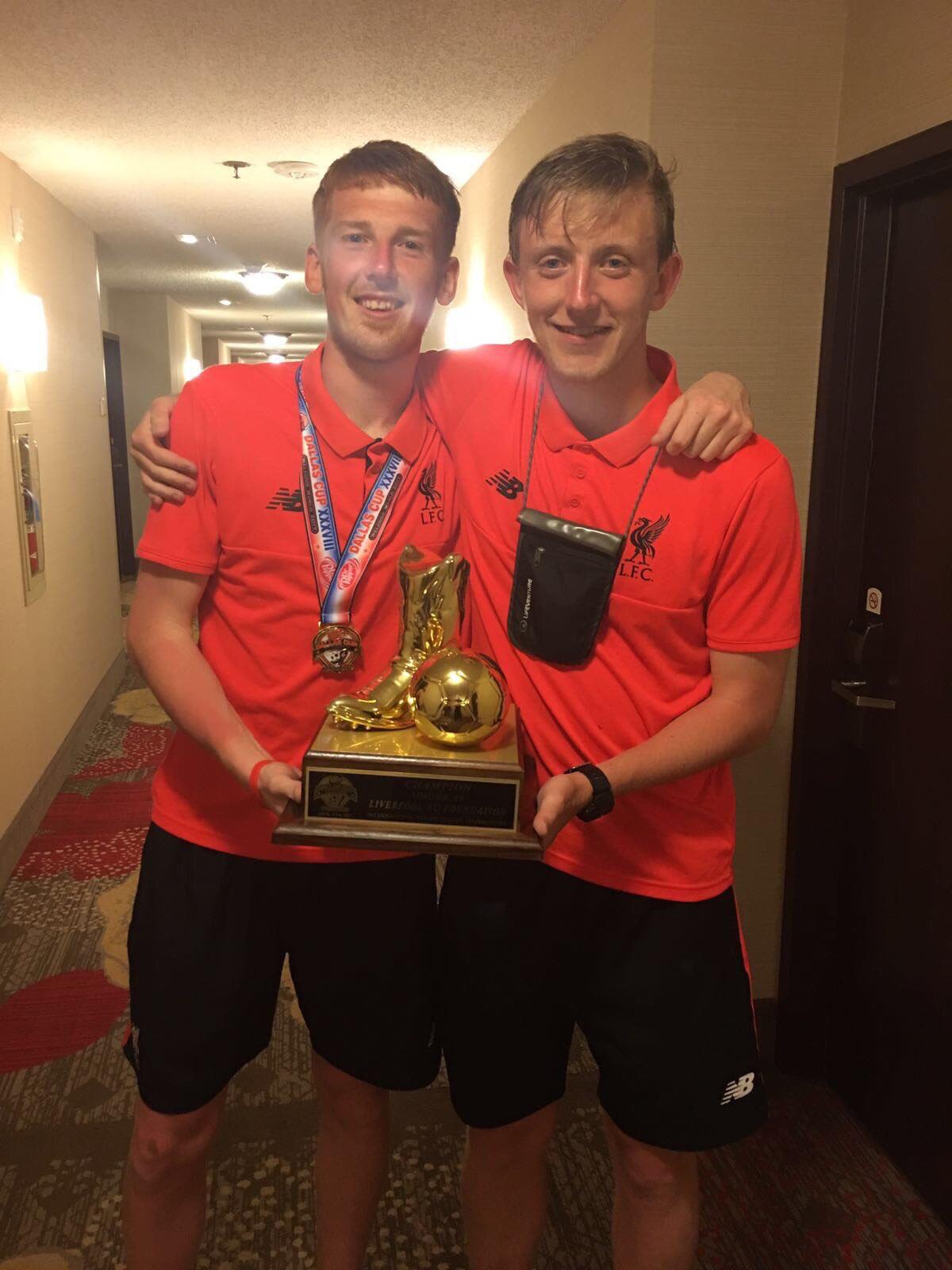
Owen celebrating his Dallas Cup victory with the Steven Gerrard Academy in 2017
Owen celebrating his Dallas Cup victory with the Steven Gerrard Academy in 2017
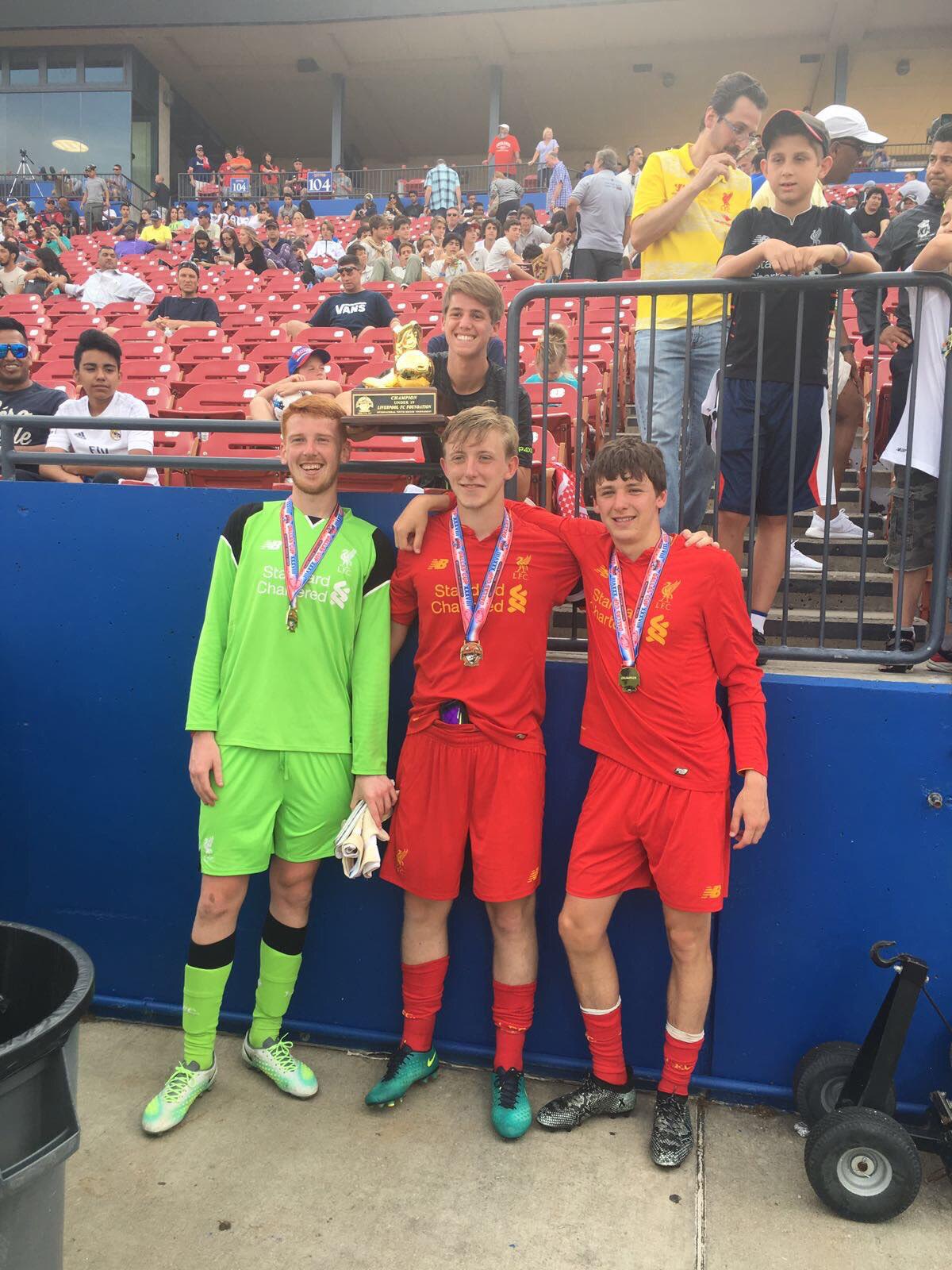
Owen celebrating his Dallas Cup victory with the Steven Gerrard academy in 2017
Owen celebrating his Dallas Cup victory with the Steven Gerrard academy in 2017
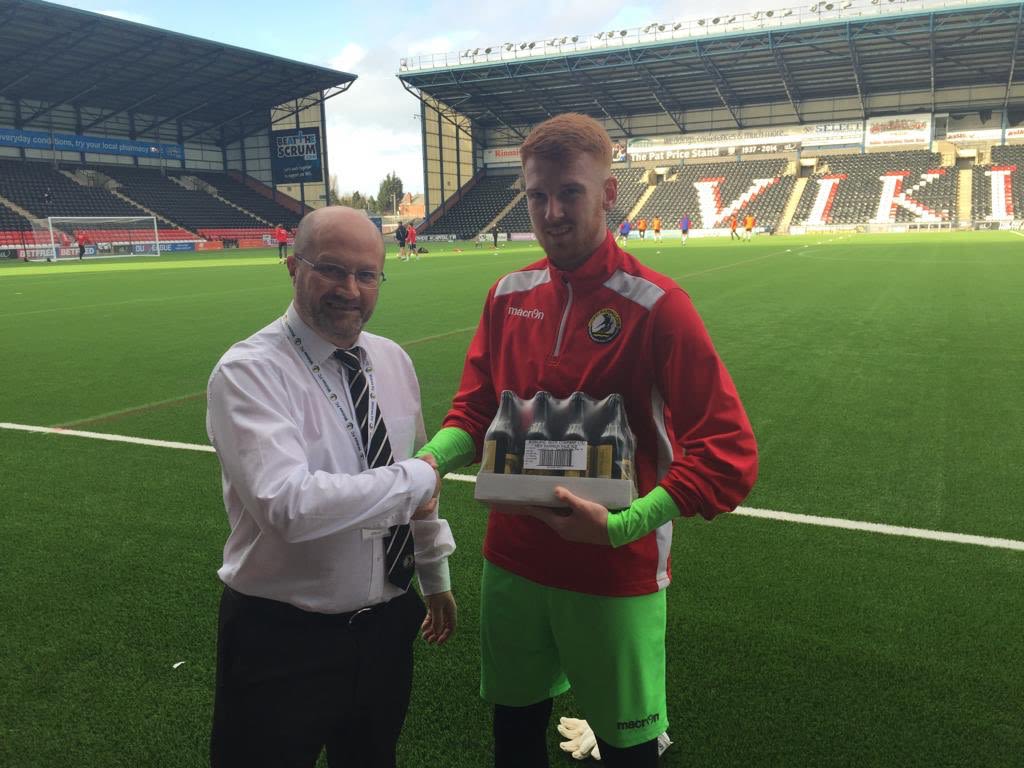
Owen playing for Widnes Football Club
Owen playing for Widnes Football Club
